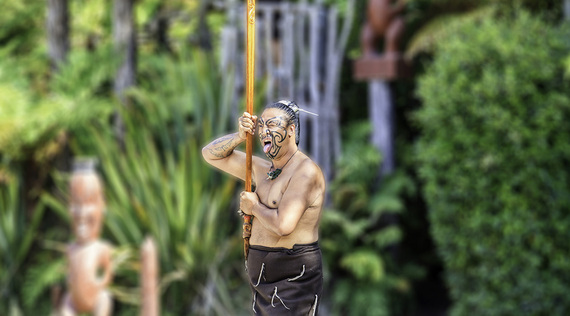Photo Credit: Darren
This article first appeared on Wearesalt.org.
Most of the time, we live atop icebergs, blissfully unaware of the mass of subconscious biases that charter our course in life. Sometimes, something happens, perhaps a remark or an incidence that gives us a chance for reckoning. If we are wise, we listen to the stories running through our minds and question our beliefs. If we are not, we rationalise our actions and reclaim our position atop the iceberg.
In our day and age, it seems that we are keen to work on our personal stories. Self-awareness is "in", and there's a newfound obsession with mindfulness practices as the answer to everything that ails us, from attention deficit to stress and ill health. What is often forgotten is that these practices originated in Eastern traditions as a way of overcoming self-centered drives and waking up to the responsibility we hold towards the wellbeing of others.
This is where we seem to have lost our way. Distracted by technology and overwhelmed by the magnitude of the problems we face, we have allowed our institutions to craft stories that underlie our subconscious beliefs about others and determine how we show up in the world. Scottish philosopher David Hume would certainly feel vindicated. His proclamation that "reason is slave to passion" is evident not only in our individual reactions and justifications, but also in the "motivated reasoning" of our politicians and institutions that influence us.
There is one very real reason we should pay attention to the stories we are told -one that takes us back to our very nature. Psychologist Barry Schwartz talks about the ability of institutions in which we live and work to create human nature. The stories we are told about ourselves and others influence who we become and what we do to rise up to the challenges before us. Their "technology of ideas" has immense implications for the future of our civilisation, and as leaders, we hold a tremendous moral responsibility.
There are a couple of things that we need to bear in mind as we undertake this journey. One, we cannot do away with stories. They have been with us ever since we learnt to gather around fires, look up at the skies and question our place on this planet. Historian Yuval Harari argues that stories led to our rise to the top of the food chain by enabling us to cooperate flexibly in very large numbers of unknown people. However, the very mindset of our evolutionary journey that allowed us to cooperate within our "tribe", created competition with tribes of differing stories. We've seen it throughout our history in the wars resulting from the Thucydides Trap. And we see it again in our current world. The current refugee crisis and the status quo over climate change are nothing other than national interests prevailing over a global humanity.
Secondly, the human brain is hugely dichotomous. The prefrontal cortex, the seat of human "excellence", places a break on our emotions and provides us with the space to be ingenious. In this space we are as capable of being Machiavellian as we are of being moral. We see our capacity for deceit in the likes of the Wall Street crisis and the Volkswagen emissions scandal. And we see our desire for altruism in the compassionate acts of human goodness that are mostly evident at the individual level.
If we are to rise to the increasingly complex challenges we face at a global level, we have to rise above the tribal mindset and as leaders, instil stories based on universal compassion and mutual respect. Moral development expert William Damon claims that morality is not simply a consequence of noble emotions. It is as dependent on conscious, deliberate processes of cognition that shape our emotional responses and lead to "unconscious" moral choices. The stories we craft and believe in determine who we become and how we tackle the challenges we face as a common humanity.
We may continue to be driven by our passions for a long time to come. But the goodness of the stories that underlie them is what will knit the universal human fabric together and determine the success of our journey into the future.

